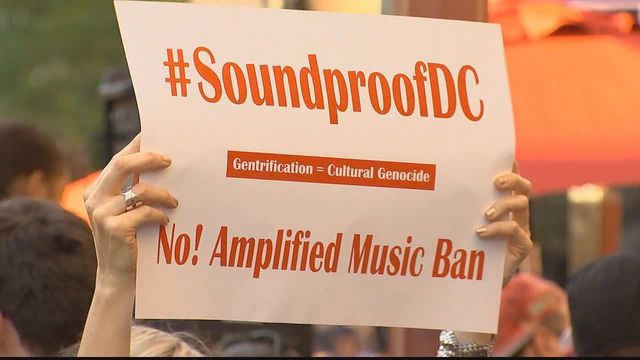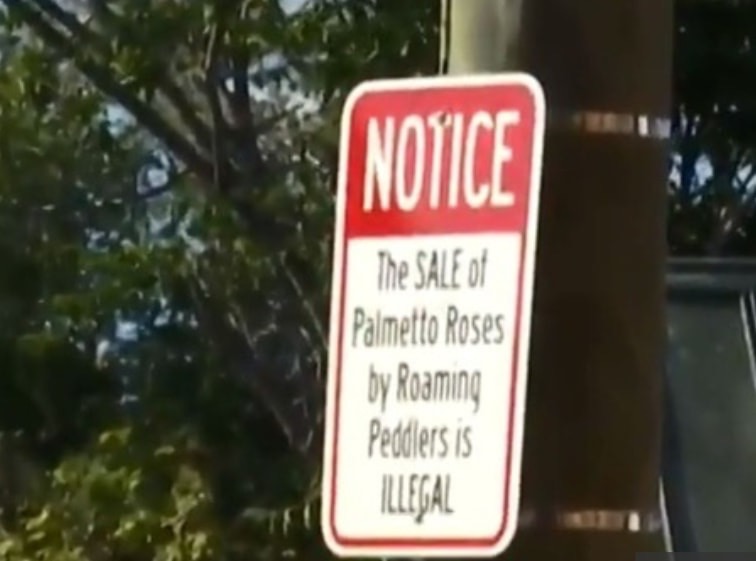Gentrifiers in Washington D.C., Charleston, S.C. and Around the Country Criminalizing Culture
Criminalizing The Culture
Living in Charleston, we’ve seen how our young palmetto rose makers are being treated; in the “Holy City’, business owners, implants, tourists, and residents in the historic district of downtown have decided that these young boys and girls are a nuisance to the gentrified city of Charleston. Rose makers are a staple in the Lowcountry; they’re a part of the Gullah Geechee culture and have been a part of making this town one of the most unique places in the country to visit. Yet, the art they create that has been shared with people from all over the world who’ve visited the Lowcountry, has been labeled as an annoyance by many in the area.

Unfortunately, the criminalization of youth who are young musicians, creators, and artists within cities that have been quickly gentrified, is a growing trend across the country. In Washington, D.C., a fight for democracy quickly emerged when the DC Council decided to create Bill 22-839 titled the “Amplified Noise Amendment Act“; an emergency bill that would impose penalties for any amplified audio that could be heard more than 100 feet away. Washington, D.C.’s music and street performance culture is a big deal, and many of these young creators make a living by sharing their music on the streets of our nation’s capital. However, as the city becomes more gentrified and taken over by the new, rich residents, young blacks are being pushed out of certain neighborhoods; and their talent and creativity that was once seen as an eclectic part of the city’s culture, is now labeled as a nuisance – similar to the Gullah Rose (Palmetto Rose) kids in Charleston, S.C.
The similarities of what they tried to do in D.C. and what they are currently doing in Charleston, S.C. are disturbing. In D.C., city council proposed a bill stating, “repeat offenders would be given a one time warning by law enforcement and are subject to a fine not to exceed $300 or imprisonment not to exceed 10 days, or both.”These so-called ordinances are quickly being created as a means to give kids, some who are barely teenagers, criminal records for simply playing music or selling a handmade rose. The community in D.C. however, quickly banned together to stop the impending bill.
When the creative community in D.C. learned of the impending bill, they came together using social media and boots on the ground to fight against the unfair legislation. Activists, artists, and creators rallied under the #SoundproofDC slogan, held press conferences, conducted interviews, created campaigns, and demanded that city council protect the culture. For now, their efforts seem to have been effective; theAmplified Noise Amendment Act of 2018 (B22-0839) was withdrawn temporarily for the summer. DC’s city council is adjourned until the fall, and in the words of Kymone Freeman, co-founder ofWe Act Radio, “celebrate the small victory,” but cautioned that they should then “get ready for round 2 in the fall.”
Charleston, S.C. Reactive, Instead of Proactive
Unfortunately, for residents of Charleston, S.C. the city ordinance that criminalizes kids for selling palmetto roses without a permit has already been passed; and as usual -Charleston residents are fighting re-actively instead of proactively. Many of the children in Charleston, who believe they can sell palmetto (gullah) roses, without the help/permit from the city, are being fined and arrested. They city’s sketchy ‘artisan requirements’ that were intended to be young entrepreneurial programs for these kids, seem to be more of an effort to police rose kids, and keep them from annoying rich tourists and business owners in the historic district of Charleston.
A reactive fight is one where much of the damage has been done already; neither the city nor the residents of Charleston have done any of these kids a service in helping them to become better business owners. Solutions to this issue also seem to be remiss; as usual, lots of talking, Facebook stats, and picture ops, without any solutions in helping these kids make money, be professional, and have fun while conducting their artisan businesses.
Whether it’s D.C., Charleston, or any gentrified city in the U.S., the one thing new residents to these communities need to understand is that people of color are the culture and the heartbeats of these cities. People of color gives these bland cities its flavor and flare, and are the reasons why visitors from across the world flock to these cities. It’s our music, art, culture, sound, and food that drives people to these towns, while they shop at your bland/boring cutesy tea houses, and art galleries. Learn to live together, appreciate the culture and buzz that people of color have created, and understand that we aren’t going anywhere. The fight in D.C., Charleston, and around the country to protect our children, and their art, will continue.
Syllabus Magazine, the Carolina’s source for Music, Culture and Fashion














